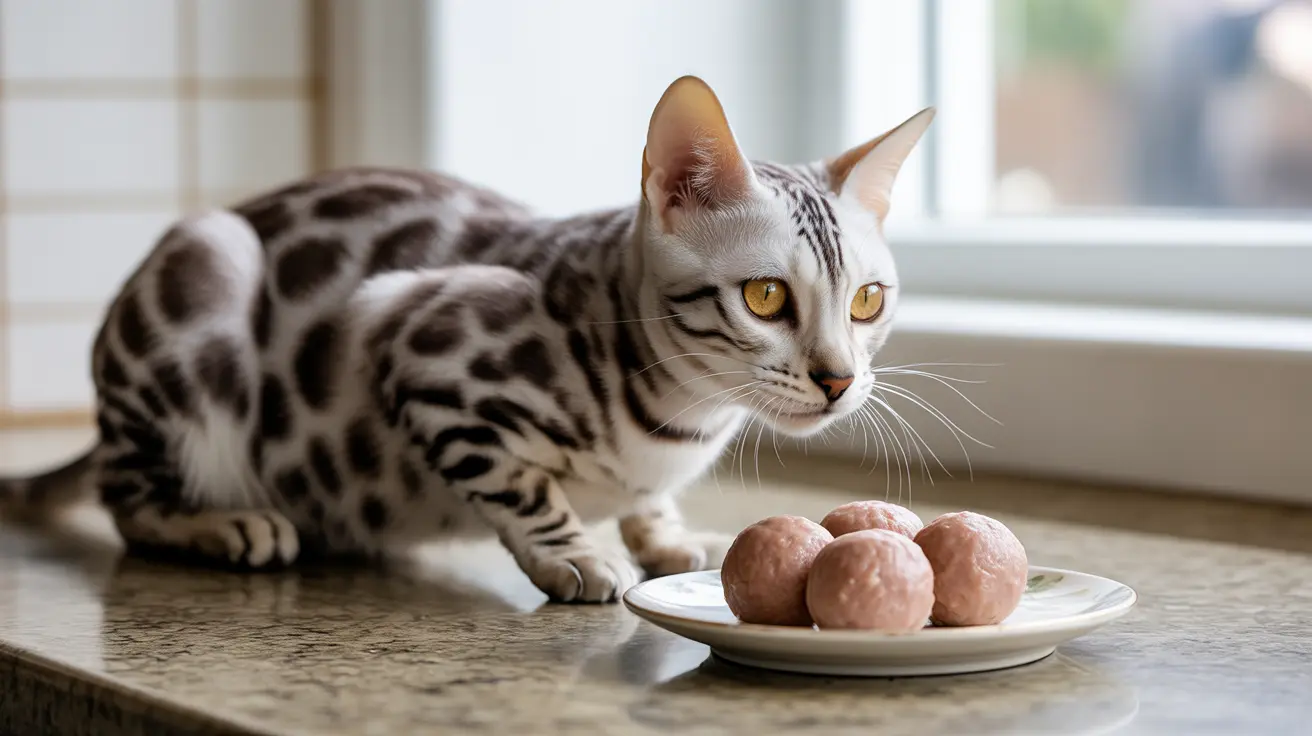Understanding Meatballs and Cat Safety
As obligate carnivores, cats naturally gravitate towards meat-based foods. While meatballs might seem like an obvious treat choice for your feline friend, there's more to consider than just their meat content. Understanding what makes meatballs safe or potentially dangerous for cats is crucial for any pet owner.
The safety of meatballs for cats largely depends on their ingredients and preparation method. While plain meat can be suitable for cats, many meatball recipes contain ingredients that could harm your feline companion. Let's explore the important factors to consider before sharing meatballs with your cat.
Safe vs. Dangerous Meatball Ingredients
Safe Components
When it comes to cat-safe meatballs, the following ingredients are generally acceptable:
- Plain, lean ground meat (beef, chicken, or turkey)
- Small amounts of plain breadcrumbs
- Minimal, cat-safe herbs
Harmful Ingredients to Avoid
Many common meatball ingredients can be toxic or harmful to cats:
- Onions and garlic (highly toxic)
- Salt and heavy seasonings
- Excessive oils or fats
- Dairy products
- Spicy ingredients
- Processed sauces
Guidelines for Feeding Meatballs to Cats
If you decide to offer meatballs to your cat, follow these important guidelines:
- Only serve plain, cooked meatballs without seasonings
- Ensure they're thoroughly cooked to prevent bacterial contamination
- Offer small portions as occasional treats only
- Monitor your cat for any adverse reactions
- Keep meatballs to less than 10% of their daily food intake
Healthier Alternatives to Regular Meatballs
Instead of traditional meatballs, consider these safer options:
- Commercial cat-specific meatball treats
- Homemade cat-safe meatballs using plain meat
- High-quality wet cat food with similar texture
- Plain cooked meat pieces
Nutritional Considerations
While meat-based treats can be part of a cat's diet, they shouldn't replace balanced cat food. Commercial cat food contains essential nutrients like taurine that cats need for optimal health. Even the safest meatballs lack these crucial nutrients.
Frequently Asked Questions
Can cats safely eat meatballs without risking their health?
Cats can safely eat meatballs only if they're made with plain, cooked meat without harmful ingredients like onions, garlic, or excessive seasonings. They should be offered as occasional treats, not as a regular meal replacement.
What ingredients in meatballs are toxic to cats?
Several common meatball ingredients are toxic to cats, including onions, garlic (both fresh and powdered), excessive salt, certain spices, and some herbs. These ingredients can cause serious health issues ranging from digestive problems to potentially fatal conditions.
How do I make homemade, cat-safe meatballs?
To make cat-safe meatballs, use plain ground meat (beef, chicken, or turkey), cook thoroughly without seasonings, and form into small, bite-sized portions. Avoid adding any spices, onions, garlic, or breadcrumbs.
Can cats eat IKEA meatballs, and are they nutritionally suitable?
While IKEA meatballs aren't toxic in small amounts, they're not nutritionally suitable for cats due to their seasonings, salt content, and other additives. It's better to avoid feeding them to your cat.
What are the health risks of feeding cats meatballs regularly?
Regular consumption of meatballs can lead to obesity, nutritional imbalances, digestive issues, and potential toxicity from harmful ingredients. Long-term feeding of human meatballs can also result in deficiencies of essential nutrients cats need.
Conclusion
While cats can safely consume certain types of meatballs in moderation, it's crucial to be extremely careful about ingredients and portion sizes. The safest approach is to stick with commercial cat food and treats specifically formulated for feline nutrition. If you choose to offer meatballs, ensure they're plain, well-cooked, and free from harmful ingredients.






